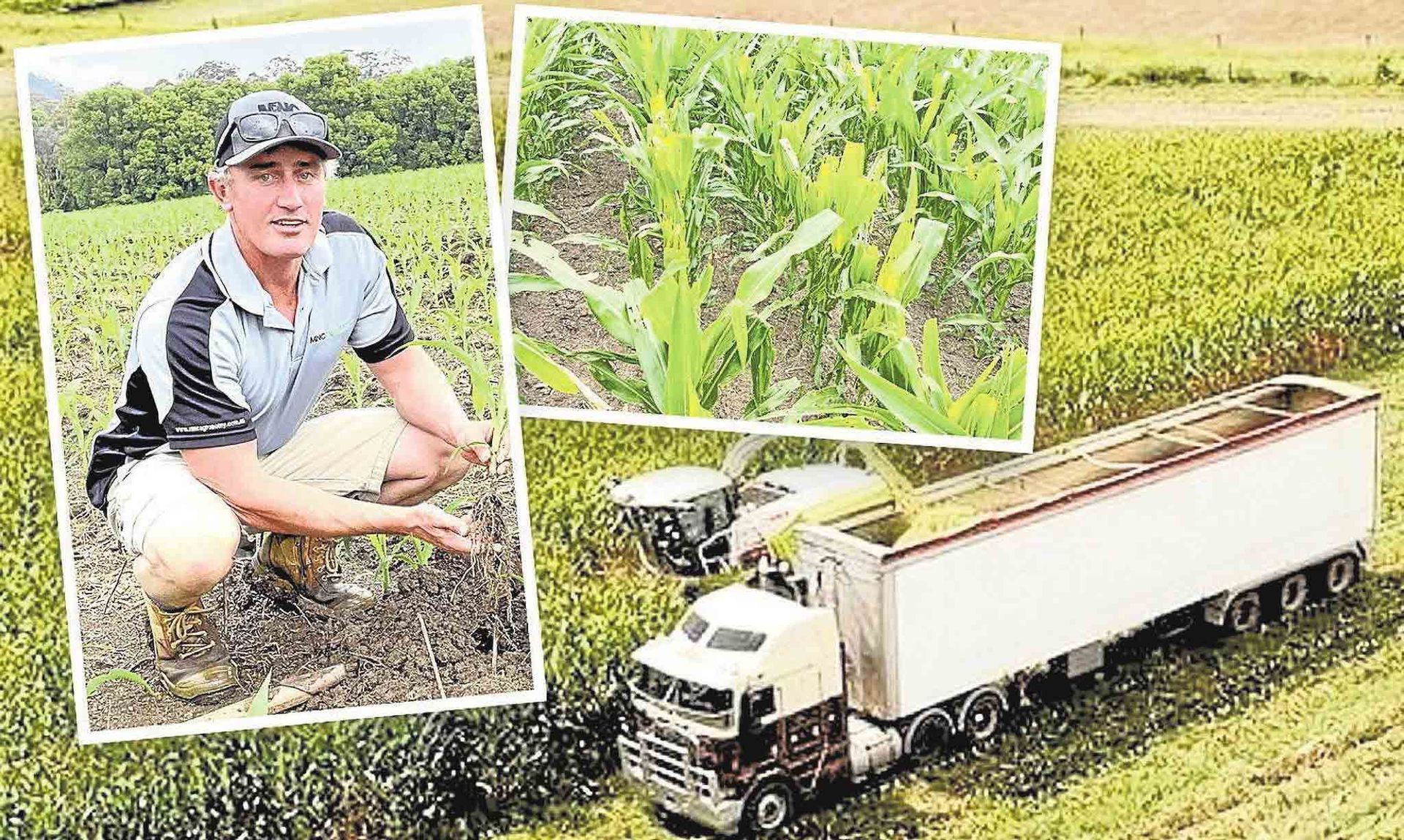Do it right, or not at all
Fall army worm delivers change
By Jamie Brown | The Land | NSW - theland.com.au/story/8167232/do-it-right-or-not-at-all.
James Lyon, Lyon Ag, Nowendoc, manages three crews using swarms of drones to manage country from the Hastings and Hunter Valley west to Wee Waa.
Livestock producers growing corn for high quality silage have been forced to step up their game - or go without - as the third season battling fall army worm delivers lasting lessons.
Agronomists pioneering a path forward say the correct game plan involves specific integrated pest management techniques to produce a crop with little to no loss of yield or quality.
"Fall army worm (FAW) is a significant problem if not managed correctly and it is costing producers money on top of their usual management program," says Matt Thompson, from Mid North Coast Agronomy. He helps manage more than 2500 hectares of corn crops on the coastal NSW strip, from Bowraville via Coffs Harbour to the Shoalhaven Basin.
"Growing corn for a high-quality forage is a significant and very important aspect in supporting year-round milk production for many of my dairy clients," he says.
"It isn't a cheap process with fertiliser and seed price increases over the last few years, but it certainly is cost effective if done correctly."
Although fall army worm presented a daunting challenge in its initial summer, Mr Thompson and his clients are confident that their detailed program works.

Agronomist Matt Thompson has adopted the use of biological sprays early in the life of corn to control fall army worm. Bad management leads to poor yields while correct action can deliver the goods.
This involves close monitoring, the use of biological controls from very early in the crop, supporting beneficial predatory insects and the deployment of very selective group 28 insecticides, only when needed.
"We learnt very early, by the mistakes of others in Queensland and across the globe, that throwing 'knockdown' insecticides at FAW was not only a waste of money but it makes the problem exponentially worse, as it only encourages FAW to dominate in the crop, with no beneficial insects left to help control their population" Mr Thompson says.
"This isn't about eradication, its about pest minimisation and focussing on growing a healthy crop supported with some very specific foliar applications to ensure crop yield and quality doesn't suffer".
Mr Thompson said, that although remaining open to tweaks and improvements the control program was fairly settled and he was confident going into next summer's crop and beyond.
Mr Thompson advises his clients use the biological control, Fawligen, early in the crop's life, when corn has two to three leaves, or when there are first signs of FAW egg lay of hatchings, and when FAW is typically at first-instar stage or less.
"Use of Fawligen early, and again when applying trace elements as foliars at around the V5 stage, definitely has worked well in minimising pest numbers.
However, there is no hard and fast spray date rule and monitoring is needed to ensure timing is correct and effective," he says.
"The use of translaminar selectives are used pre-tasselling if the populations are deemed excessive either by high clearance sprayers or by air. Drones proved very helpful the last two wet summers."
Mr Thompson estimates that successful FAW control has added between $375-$500/ha.
"However, for a high starch crop producing more than 20 tonnes dry matter over a four month period it is an expense that is required to ensure the crop succeeds," he says.
"It's at the point that corn growers either do the job properly or not at all."
Drone application of chemistry has found its niche in dealing with pest, especially where wet ground prevents tractor access and where high-clearance spray rigs are unavailable.
James Lyon, Lyon Ag, Nowendoc, (pictured on our cover) manages three crews using swarms of drones to manage country from the Hastings and Hunter Valley west to Wee Waa.
"Drones are superior when it comes to spraying corn in small paddocks where it's difficult to use a helicopter or fixed wing aircraft," Mr Lyon says. "They use their down-force to drive spray into the plant canopy."
A single machine with a 40 litre payload can cover up to 15ha an hour, but with higher water rates used to combat FAW that figure is more like 5ha/hr.
Iain Sommerlad, senior agronomist with AgBiTech, Toowoomba, Qld, says fall army worm pressure arrived much earlier this past season, along with extra pressure from Helicoverpa.
Fawligen's formula is produced invitro with caterpillars infected with SfMNPV, the virus, similar but different to the company's ViVUS Max for Heliocoverpa.
Fawligen was brought into Australia the first year FAW appeared in the country under a special emergency use permit with the assistance of industry and QDAFF in 2020.
"Fawligen is hyper selective and does not have activity on any other species of caterpillars or beneficials making it the perfect partner where Integrated Pest Management strategies are employed," he says.
"Unlike the company's product for Heliocoverpa, ViVUS Max, the epizootic effect is not as pronounced with Fawligen, primarily due to the larval stage being targeted.
"By comparison, caterpillar control using broad-spectrum systemic chemistry that kills beneficial insects results in a world of hurt, as growers found out when they first encountered the prolific larvae.
"The beneficials are doing the majority of the heavy lifting," says Mr Sommerlad.
Applications of Fawligen through overhead irrigation had been proven effective, provided no more than 10 millimetres of water was
applied for each event.
"We've had growers going as low as 4mm-5mm through overhead irrigation, and the results are superior to conventional boom or aerial application" he said.
Share this
More articles
